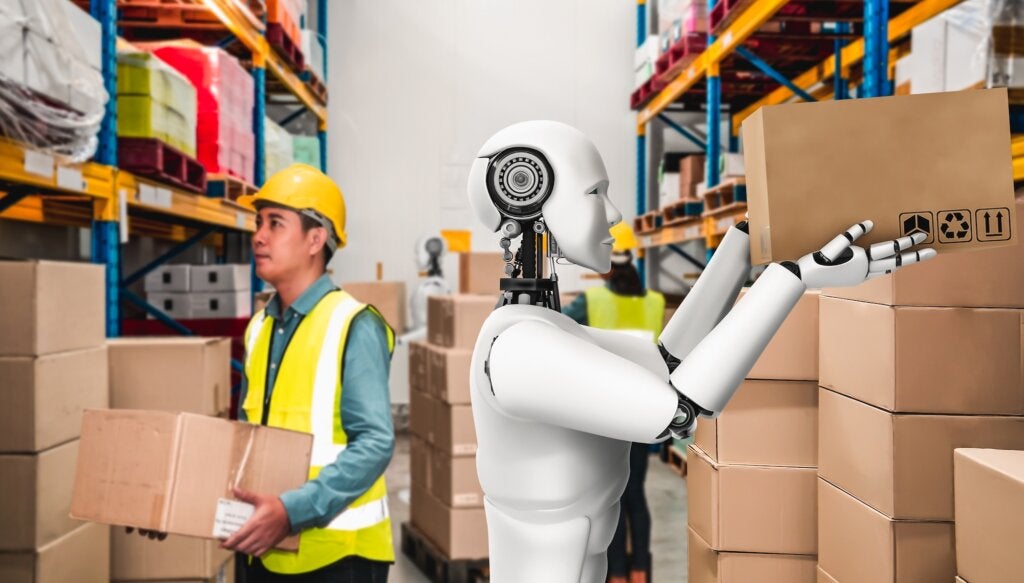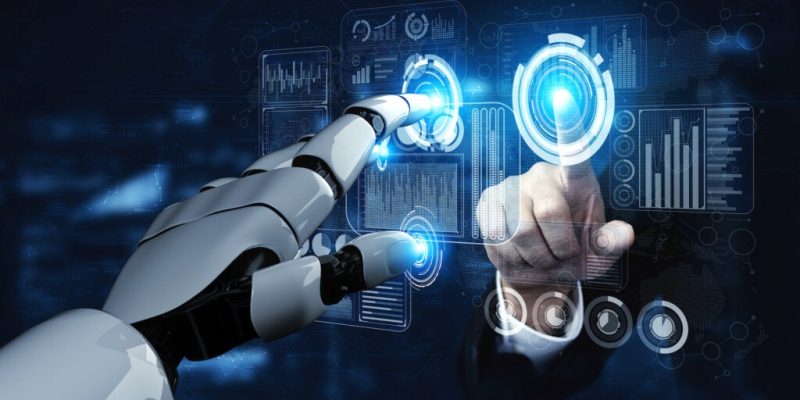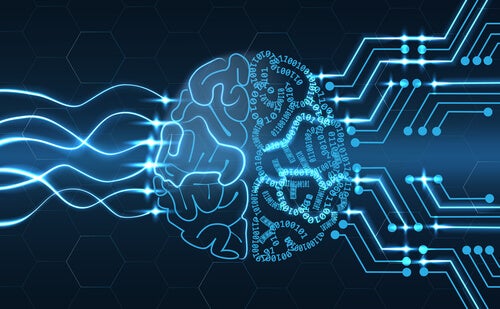Without a doubt, artificial intelligence is promising. That said, its progress also contains a series of truly transcendent dangers that deserve reflection. Advances tend to be so closely linked to technology that, in many contexts, we forget that they’re two separate dimensions. However, the secondary effects of certain devices are extremely important.
Hayden Belfield, a scientist at the Center for the Study of Existential Risk at the University of Cambridge (UK), recognizes only two transcendental inventions/discoveries for our evolution: the invention of fire and the discovery of nuclear energy.
Artificial intelligence could be the third, mainly because of the risks involved. Here, we’re going to talk about three of the most important.
“Today is the moment in which we build our future and this today is the greatest challenge that the human race has faced so far. The possibility of a kind of superman who becomes God is unprecedented.”
-Gerd Leonhard-
1. Increased control
Many experts believe that it won’t be long before we see the kind of engineering that possesses a ‘super intelligence’. By this, we mean intelligent machines: devices with technology capable of processing information in the same way as the human brain does. As such, those that work with little information, but can consider entities and work in a contextual manner. However, these machines will be better and faster than the human brain.
Professor Nick Bostrom from the University of Oxford (UK), claims that we’re approaching a ‘smart explosion’. In other words, a leap in which machines become a new type of intelligent life. This will happen when these devices become autonomous.
These events will inevitably lead to a situation in which machines will have more power. In fact, they’ll be able to control aspects of daily life and have the ability to carry out unprecedented surveillance on humans. The consequences are unpredictable.
2. The decline of certain human attributes
Gerd Leonhard wrote a book entitled Technology Versus Humanity: The Coming Clash Between Man and Machine (2016). He believes that it won’t be long before machines are able to understand human emotions and develop social intelligence. At this point, they’ll have all the tools to become ‘super intelligences’.
In fact, they’ll begin to connect with each other and design a suitable reality to guarantee their own evolution. The question is whether machines will adapt to humans or require humans to adapt to them. This is an ethical dilemma that’ll probably end up being resolved in a cold and calculated manner.
In the meantime, we’ll witness the decline of certain attributes that define us as humans. For example, the possibility of making mistakes, being inefficient, or being overwhelmed by mysteries. In fact, we can’t help but wonder whether they’ll start to be viewed as inadmissible failures.
3. Error and lack of neutrality
Another of the great risks of advanced intelligence lies in the fact that there’s still a way to go before they become ‘super intelligences’. However, during the journey, serious failures could occur that generate great problems for humanity.
For example, machines have become increasingly capable of creating fictitious situations, in an almost perfect way. Indeed, we’re only one step away from being able to alter a person’s image on video and adapt their facial gestures to match words they never even said. In other words, it’s become increasingly easy to distort reality and create, among other things, fake news.
Added to this is the fact that technology isn’t neutral. In fact, it’s been seen that judges in the United States who use this kind of intelligence evaluate African-American citizens more severely than others. Algorithms are more or less designed for this purpose.

Other blows of artificial intelligence
These are just some of the risks of artificial intelligence. But, there are probably many more that we can’t even identify yet. That’s because they’ll essentially depend on the decisions we make as humanity regarding the limits that we want to impose.
Furthermore, it’s extremely likely that the world of work we know today will be really different from the one we’ll see in a decade. Traditional professions will probably disappear to be replaced by others.
Moreover, it’s likely that those who possess the skills to generate business by fully exploiting the potential of this technological evolution will be more valued.
The post Three of the Biggest Risks of Artificial Intelligence appeared first on Exploring your mind.



















Comments